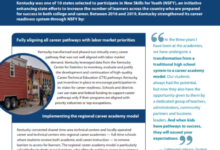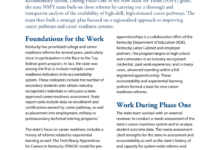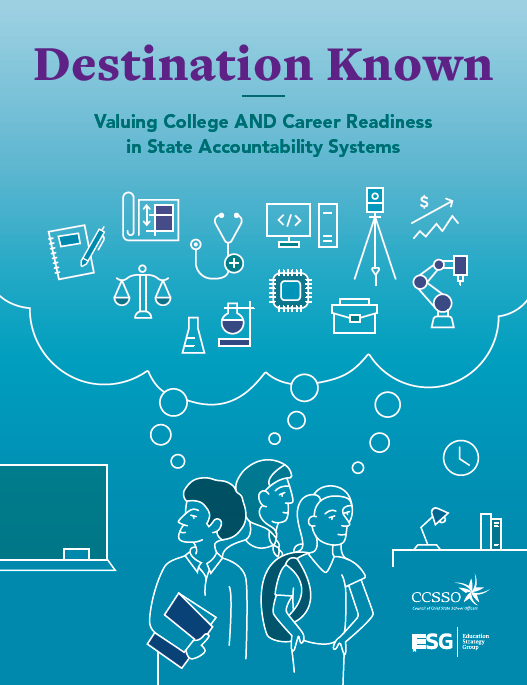Economic projections indicate that the country needs to dramatically increase — from 50 to 65 percent — the working age population that possesses a degree, certificate or other high-quality postsecondary credential to meet future workforce needs. But the call for action is greater than economic competitiveness. It’s a matter of equity, as fewer youth from traditionally underserved subgroups transition to and successfully complete postsecondary education and training. States have an immense opportunity to refine their accountability systems to focus on preparing students for both college and careers. State leaders can and should develop systems of accountability and support that drive toward that vision.
This report from Education Strategy Group and the Council of Chief State School Officers provides a roadmap for the measures states can use in an accountability system to support all students in achieving success after high school, as well as strategies for putting that accountability system into practice. The report recommends four measures that states should consider in their accountability systems:
- Progress toward Post-High School Credential
- Co-curricular Learning and Leadership Experiences
- Assessment of Readiness
- Transitions beyond High School
It further provides key actions that states can take to adopt and integrate such measures into public reporting and statewide accountability systems. This resource provides valuable recommendations, supplemented with examples from leading states, to help state leaders design and implement an accountability system that encourages career readiness.






